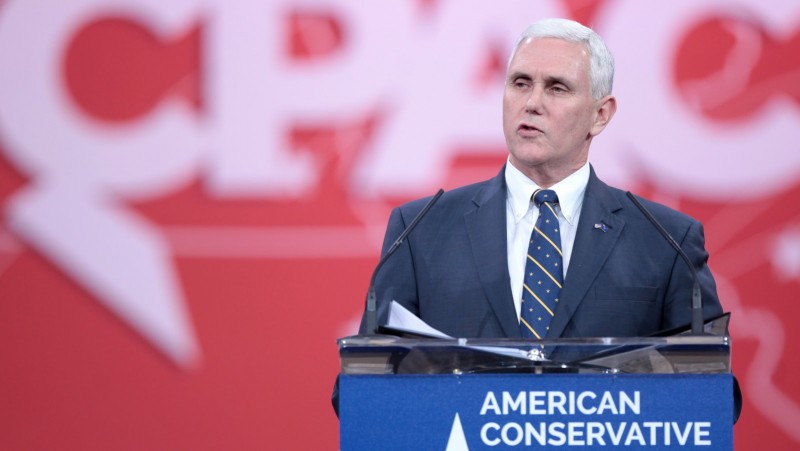An estimated 50,000 people will head to Cleveland, Ohio for the Republican National Congress (RNC) from 18-21 July.
No doubt who’s the headline act: Donald Trump is seeking the backing of the Grand Old Party as he prepares for his final tilt at Hillary Clinton and the White House.
The Convention’s theme is ‘Make America Great Again’, and it’s likely to be an opportunity to see some of Trump’s energy and climate policies – such as they are – close up.
While the Clinton campaign last week launched what green groups say is a radical plan to slash greenhouse gas emissions, Trump seems likely to head in the opposite direction.
For instance, a draft platform approved by the RNC declares coal as “an abundant, clean, affordable, reliable domestic energy resource.”
His new running mate – Indiana governor Mike Pence – has supported a legal challenge against the Clean Power Plan and has voiced doubts on climate science.
EU energy package
…this week we also expect Brussels to release a tranche of plans for cutting emissions in transport and agriculture, and proposals for including forestry and land use in the EU’s wider climate targets.
Vienna HFC talks
No major dramas at the latest round of UN talks on stamping out potent warming gases known as HFCs, which continues into this week, with ministers turning up in unprecedented numbers.
With three months till a new pact is expected to be agreed at a meeting in Kigali, Rwanda, delegates said progress had been made on funding and a date for a phase out.
A deal could knock off up to 0.5C of expected global warming, say scientists.
We’ll have more news and analysis from the Vienna talks in the coming days. Meanwhile, here’s our last progress report.
Turkey energy concerns
With over 6,000 now arrested and nearly 300 dead, impacts from the failed coup in Turkey will continue to reverberate for weeks and months to come.
On Sunday a visibly angry and emotional President Recep Tayyip Erdogan suggested the death penalty could be appropriate for some of those involved in Friday night’s uprising.
The uncertainty raises questions over the country’s ability to maintain its status as an energy transit route, some analysts have suggested.
An estimated 2.9 million barrels of oil is transported in ships sailing through the Bosphorus Straits and in pipelines from Azerbaijan and the Middle East.
“Expanding diversity of supply provides increased energy security for when unexpected events happen,” Jason Bordoff from Columbia University’s Center on Global Energy Policy told the FT.
Tuvalu’s QR code
The very first giant QR code formed by mangroves will appear at an island nation in South Pacific. By scanning the QR code, people of the world will learn about climate change.

Here’s more: “Artist Vincent J.F. Huang aims to plant Tuvaluan Rhizophora Stylosa at Funafala islet coast by the end of this August, and form a QR code to represent the ridiculous thinking about climate change, the carbon emission by modern society and the data of how much mangrove can reduce the lost of land in Tuvalu.”
Australia reshuffle
New energy and environment minister Josh Frydenberg is on record saying there’s a “strong moral case” for Australia to export coal to poorer countries that need it. PM Malcolm Turnbull merged the environment and energy portfolios – which includes mining – over the weekend.
UK reshuffle
Another climate hawk joins the newly created Department for Business, Energy and Industrial Strategy announced last week: Nick Hurd MP, head of the Conservative Environmental Network
Honoured by invitation from PM to be part of new government and join @gregclarkmp and team as MOS at exciting new Business Department #BEIS
— Nick Hurd (@NickHurdUK) July 16, 2016
ICYM, prime minister Theresa May announced the the UK’s climate department (DECC) will merge with business. Greg Clark is secretary of state for the expanded brief.
Two reports out on Wednesday…
-The Environmental Audit Committee has commissioned the NAO to review the impact of the Treasury’s spending review on environmental policy.
-The Public Accounts Committee publishes its report on household energy efficiency measures.
And on Thursday Parliament breaks up for summer. After the last month we’ve had, not a moment too soon.
Ukraine
The government in Kiev has voted to ratify the Paris climate agreement. 279 out of 450 MPs voted in favour of the amendment. Analysts think the UN deal – which requires 55 countries covering 55% of global emissions to formally join – could come into force by the end of 2016.
